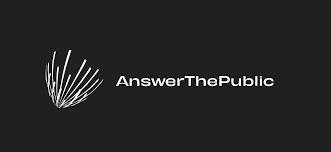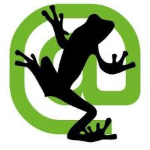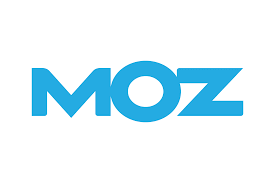Best SEO tools
Optimize Your Online Presence: A Guide to SEO Tools
SEO tools are essential for anyone aiming to improve their website’s performance in organic search. These software solutions, also known as organic search marketing software, provide valuable insights and functionalities to help you boost your website’s ranking on search engine results pages (SERPs) without the need to pay for ad placement. They are widely used by product teams, marketers, and SEO specialists to identify opportunities for improvement, analyze competitor strategies, and ultimately, drive more traffic to their sites.
Show more
The best SEO tools offer a comprehensive suite of features to optimize every aspect of your website. Core functionalities include SEO auditing, which helps identify technical and content-related issues that could be hurting your site’s performance. Keyword research tools are crucial for discovering and analyzing high-value search terms, while rank-tracking monitors your progress in SERPs. Additionally, link-building features help you improve your off-page SEO by tracking backlinks and finding new opportunities, and robust reporting aggregates all your data to help you track progress and make informed decisions.
Beyond these core features, many SEO platforms provide specialized tools for different needs. For businesses with a local focus, local SEO features allow you to track local rankings, manage business listings, and discover local keywords to dominate your specific market. Some tools also include functionalities for content optimization and SEO automation, helping you streamline your workflow and enhance your content’s relevance and readability. These advanced features are designed to give webmasters a competitive edge and make the process of improving their site’s ranking more efficient.
To be considered a leading SEO tool, a product must meet several key criteria. It should provide essential functions like content optimization, SEO audits, keyword research, rank tracking, and backlink monitoring. Furthermore, it must offer detailed reports on optimization-related metrics and focus primarily on improving a website’s position in free, organic search engine listings. By choosing the right tool, you can build a strong organic presence, attract your target audience, and achieve sustainable long-term growth.
-
Overview
Review
AnswerThePublic is a search-listening and content-idea generation tool that taps into search engine autocomplete data (such as Google) to reveal what real users are asking about a topic. It surfaces questions, comparisons, prepositional phrases, and related terms tied to your seed keywords. It helps content creators, marketers, and SEOs discover the queries and themes people truly care about, enabling the crafting of content that aligns closely with user interest.
In 2025, AnswerThePublic continues to serve as a powerful ideation engine, especially for those needing to break creative blocks or find content angles based on real user queries. It doesn’t replace full SEO suites, but it excels in unearthing the “what people ask” side of search. For content strategists and writers, it’s an excellent starting point to uncover questions and conversational topics your audience is asking.
-
Overview
Review
Screaming Frog SEO Spider is a desktop-based website crawler designed for technical SEO audits. It scans websites to identify issues such as broken links, duplicate content, redirect chains, meta tag problems, XML sitemap errors, and canonicalization issues. The tool helps SEO professionals analyze and improve site architecture, detect errors affecting search engine indexing, and generate detailed audit reports. It is widely used by agencies, in-house SEO teams, and web developers for maintaining site health and compliance with SEO best practices.
In 2025, Screaming Frog continues to stand out as a cornerstone for technical SEO. It delivers unparalleled visibility into a site’s internal structure, highlighting issues that directly impact crawling, indexing, and overall performance. Unlike cloud-based tools that emphasize broader SEO strategies, Screaming Frog is laser-focused on diagnostics and precision. For anyone managing complex websites, it remains one of the most reliable tools to ensure technical excellence.
-
Overview
Review
SpyFu is a cloud-based SEO and PPC competitive intelligence platform. Users can enter any domain (or keyword) and see which keywords the domain ranks for, how they’ve ranked over time, and what their likely ad spend has been. It offers data for Google and Bing, including both organic search performance and paid advertising metrics. The tool is meant to surface competitive opportunities (keywords competitors use, ad history, shared keyword overlaps), and to help track your own rankings via project tracking. SpyFu provides tools like “MySpyFu” which allow users to build projects around their domain or keyword sets, and receive regular ranking updates, historical data, keyword suggestions, and reports.
SpyFu is a powerful competitive intelligence platform that uncovers the organic and paid search strategies of any domain. By surfacing competitors’ keyword portfolios, ad spend history, and ranking trends, it provides SEOs and marketers with actionable insights to shape content strategy, keyword targeting, and PPC campaigns. Its primary strength lies in competitor transparency, making it an essential tool for businesses looking to benchmark themselves and uncover new opportunities.
-
Overview
Review
Moz (Moz Pro, Moz Local, Moz API, Moz Free / MozBar etc.) is a cloud-based SEO software suite designed to provide keyword research, backlink analysis, rank tracking, site audits, SERP analysis, and metrics like Domain Authority and Page Authority. It aims to be accessible both to beginners and experienced SEO professionals, with tools, data, and educational infrastructure to support improving organic visibility.
Moz is one of the older names in the SEO tools space. It offers a suite of tools under Moz Pro, Moz Local, Moz API, etc. Its strength is in being relatively user-friendly, well-documented, and having solid metrics (Domain Authority, Page Authority, etc.), combined with tools for keyword research, site audits, backlink analysis, and competitive insights.
-
Overview
Review
Google Ads Keyword Planner is a free keyword research tool within the Google Ads ecosystem that helps marketers, advertisers, and SEO professionals discover search terms, analyze keyword performance, and uncover traffic potential. While designed primarily for paid advertising, it is widely used in SEO for identifying high-value keywords, understanding search demand, and building content strategies aligned with real user intent. As an official Google product, it provides direct access to Google’s search data, making it one of the most reliable sources for keyword research.
Google Keyword Planner remains one of the most essential keyword research tools for SEO professionals. Despite being built for advertisers, its access to Google’s proprietary search volume data makes it invaluable for organic keyword targeting. It allows you to identify search trends, uncover long-tail opportunities, and prioritize keywords based on traffic potential, competitiveness, and seasonal demand.
-
Overview
Review
Google Trends is a free online tool that analyzes the popularity of search queries in Google Search across regions, languages, and timeframes. It provides real-time and historical insights into what people are searching for, helping marketers, researchers, and businesses identify trending topics, seasonal interests, and shifts in consumer behavior. Widely used across industries, Google Trends offers a unique window into global and local search intent, making it a trusted source for market research, content planning, and audience insights.
Google Trends is one of the most powerful yet underrated tools for understanding search behavior. It provides clear, data-driven insights into how interest in specific keywords evolves over time, across regions, and even across different Google platforms like YouTube, News, and Shopping. For marketers, researchers, and content creators, it’s a go-to resource for identifying seasonal trends, comparing topics, and spotting emerging opportunities before they peak.
-
Overview
Review
Google Search Console is a free web service by Google that empowers website owners, marketers, and SEO professionals to monitor, maintain, and troubleshoot their site’s presence in Google Search results. It provides direct insights into how Google views a website, helping users optimize performance, fix technical issues, and track search visibility. Widely adopted across industries, it is a trusted tool for ensuring websites align with Google’s evolving search ecosystem.
Google Search Console (GSC) continues to be a foundational, free tool for anyone with a website who wants to understand how it performs in Google Search. It’s more than just diagnostics; GSC is increasingly focused on helping site-owners make data-driven decisions, especially as search evolves with AI features, mobile priorities, and growth in user experience metrics.
-
Overview
Review
Semrush is a leading online visibility management SaaS platform trusted by over 10 million digital marketers worldwide. Founded in 2008, it has grown into an all-in-one marketing suite with more than 55 products, tools, and add-ons that help companies enhance their online presence. Today, Semrush operates with 143 global databases, tracks 25.9 billion keywords, and analyzes over 43 trillion backlinks, making it one of the most comprehensive platforms for digital marketing insights.
SEMrush in 2025 is an exceptionally powerful visibility and marketing intelligence platform. From extensive SEO and content features to evolving AI-driven tools, it offers a broad set of capabilities to help marketers understand, optimize, and control how their brand performs online.
-
Overview
Review
Ahrefs is a leading marketing platform built on over 15 years of internet crawling, providing massive-scale data that powers actionable insights for brands worldwide. Trusted by marketers at 44% of the Fortune 500, Ahrefs delivers deep visibility across search, AI, and the web. Its data infrastructure includes 35 trillion backlinks, 110 billion keywords, and 320 petabytes of indexed data, and it also powers Yep.com, a privacy-first search engine.
Ahrefs remains one of the top SEO platforms in 2025. It excels in core SEO data quality (backlinks, organic keywords, domain metrics) and has been pushing into AI-assisted features to keep up with changing search landscapes. But it also has trade-offs — strengths and gaps. Here’s what I found:









